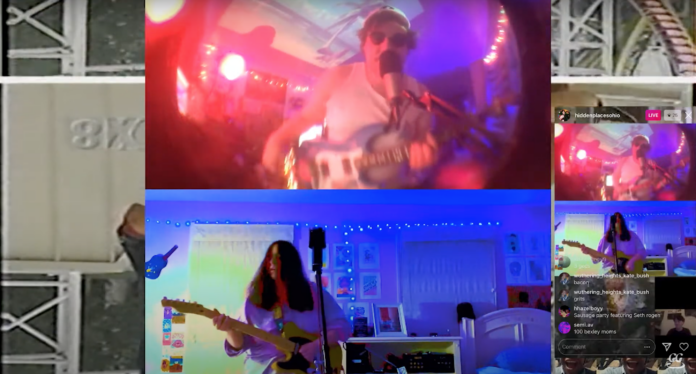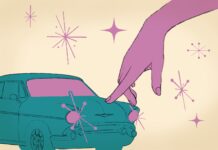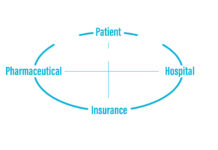Music and gathering are incredibly vital parts of humanity. For millennia, humans have used music as a way to express stories, emotions, and culture. It is something meant to be shared and we experience this in performance, dance, collaborative making, and others. With the separation induced by social distancing advisories during the COVID-19 pandemic, these shared experiences have been severely hindered, and it is questionable as to when we will bounce back. These issues affect anyone who loves, listens to, or partakes in music, but this especially harms artists and others within the industry.
The music industry has taken a devastating blow with the loss of audience. Venues have been forced to close (some for good), artists must look for other means of obtaining a stable income outside of touring, and for some, this means that they cannot create at all. To make matters worse, it is debated that the entertainment industry will be one of the last to return to the traditional senses of normalcy, if at all. Artists and other musical professionals are desperate for new solutions that will allow them to create, connect, and profit from their expertise.
I conducted a survey to gain insight as to how musical artists—local to Columbus, OH—are typically used to meeting other artists, their perceptions of collaborating with others, and what their instinctual impressions are for remote collaboration. This was done to verify pre-meditated thoughts about the problem space and to highlight the most prominent pain points within the community’s margin of loss. When asked about meeting other artists, participants said that their creative network consists of: already established friends (73.8% of participants), “friend of a friend” (61.9%), and acquaintances from events (35.7%). 21.4% said they met online, and 9.4% said that they are not sure where to start when meeting others.
When asked about the optimal conditions for collaboration between artists, 95.1% of participants stated that having in-person meetings was an important factor. Additionally, 68.3% of participants stated that being able to have the ability to improvise or take an unstructured, free-thinking approach was an important condition for music-making. These data show that there is potential for online mediums to contain benefit the music-making community, however, these mediums will need to offer opportunities equal to or better than what artists can accomplish when meeting in-person. This at least means that online mediums will need to support improvisation and facilitate a meaningful level of human connection. Alternatively, if online mediums can offer new experiences to musicians that are unique to the internet, that may open the floor for new creations and new ways for artists to support themselves financially. I was able to explore some of these possibilities by interviewing some of my survey participants with a unique distanced musical collaboration experience.
In one interview, I spoke with a Columbus local who started working with another musician/graphic designer from Charleston, South Carolina during the first weeks of the pandemic. This was a rock project that was completed by the exchange of a few short iPhone recordings, brief conversation via text, and a day’s worth of work. The resulting product was a 4 track EP, complete with album art, and complementing visuals for the duo’s streaming platforms. The interviewee mentioned that one of the biggest factors contributing to the success of the collaboration was their respective experiential aptitude in music production and graphic design. Both people were able to complete their portions of the project on their own creative accord, with very little influence from the other. The interviewee made an effort to explain that this was their favorite project to date, and that it was liberating to be able to work on a project without being tied down to one space. They were able to take immersive control over the spaces they chose to work in, which served to improve the inspirational dynamic of creating. This example shows that there exists promising potential to reconsider the context of the studio space, and the benefits those considerations may have to elevate music creation even beyond the pandemic.
A second interview was conducted with a musician, producer, designer, and video jockey (VJ) based in Columbus. They provided several examples of up and coming internet platforms that could revolutionize the concert/festival experience, radio, and even a virtual music community. This artist has played a part in the promotion, the visuals, and the line-up for an internet event called SPF420 and a few others. They have communicated that these events are both developing a scene for new concert experiences and even new genres of music. These events are just as much a sonic experience as they are a visual one, so much that the interviewee describes the visuals as the “centerpiece” of the set. This lends itself to more opportunities between visual artists and musicians to collaborate and different concert experiences that may not be as easily run offline. An advantage to these events, as stated by the interviewee, is that there typically built-in chats that are heavily used by viewers and offer chances for people to meet one another, as one would do at any other live event. The difference is that you wouldn’t have to talk over the music or even speak at all. Events like SPF420 show the resilience of musical artists to find new ways to present their work, and for the potential of the internet to become a premier place for concerts of a new caliber.
With this information in mind, some questions can be asked:
- Is there a way to build upon the success of virtual concerts (like SPF420) to overhaul the concert experience in a way that is viable to the music industry at large?
- Can studio space and processes be recontextualized to be more accessible and bolstering for music creators?
- Are there newer experiences on the horizon for visual artists and musicians to collaborate in elevated ways? Are the opportunities for design in facilitating those experiences?
- Can the musical community be invigorated and fostered by online methods in a way that has lasting benefits after a return to traditional life?




